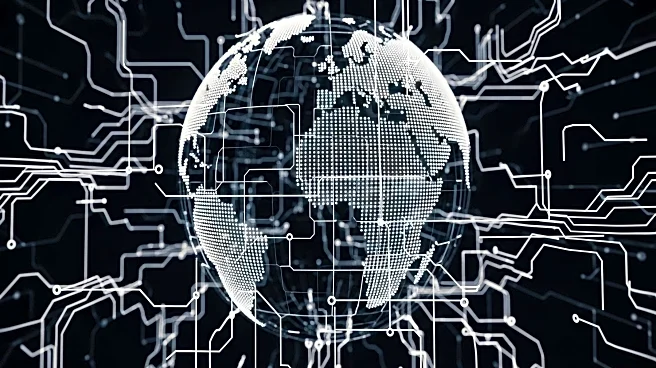What is the story about?
What's Happening?
The Indian IT industry is facing significant challenges following President Trump's decision to impose a $100,000 fee for new H-1B visas. This move is expected to disrupt the traditional model of rotating skilled talent into U.S. projects, which has been a cornerstone of the industry's strategy. With India being the largest beneficiary of H-1B visas, the fee increase could lead to a reduction in onshore staffing and a shift towards offshore delivery. Industry experts anticipate that IT firms will need to increase hiring of U.S. citizens and green card holders, potentially impacting the industry's margins and supply chain.
Why It's Important?
The H-1B visa fee increase could have far-reaching implications for the Indian IT industry and its U.S. clients. The change may lead to increased operational costs and affect the industry's ability to deliver services efficiently. It could also impact the U.S. tech sector, which relies on skilled foreign workers to fill critical roles. The move may prompt IT firms to accelerate the growth of global capability centers in countries like India, Mexico, and Canada, potentially reshaping the global IT landscape. Additionally, the fee increase could lead to legal challenges and influence future immigration policies.
What's Next?
The Indian IT industry may need to adapt its strategies to mitigate the impact of the H-1B visa fee increase. This could involve expanding offshore operations, investing in local talent development, and exploring alternative markets. Legal challenges to the fee increase are anticipated, which could influence the policy's implementation and future adjustments. The situation may also prompt discussions on immigration reform and its implications for the tech industry. Stakeholders will need to navigate these changes carefully to maintain business continuity and competitiveness.

















